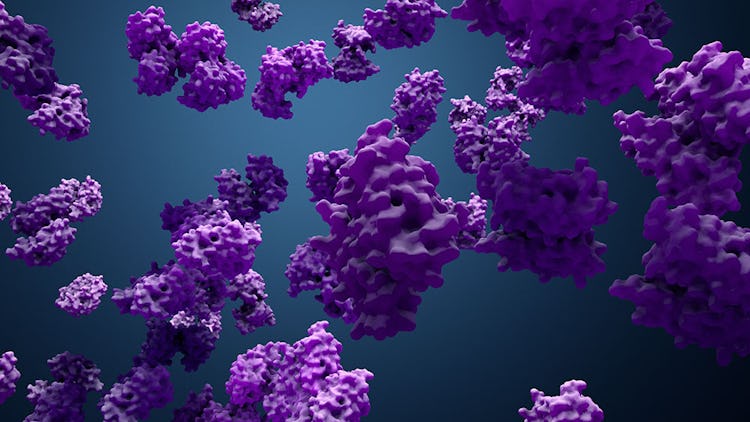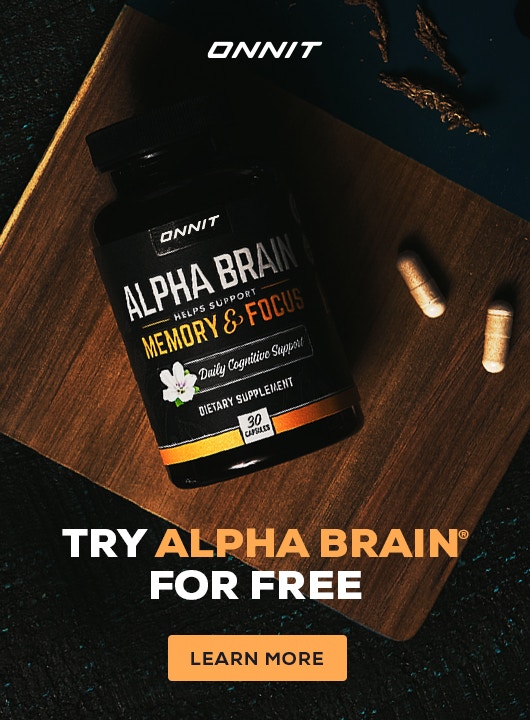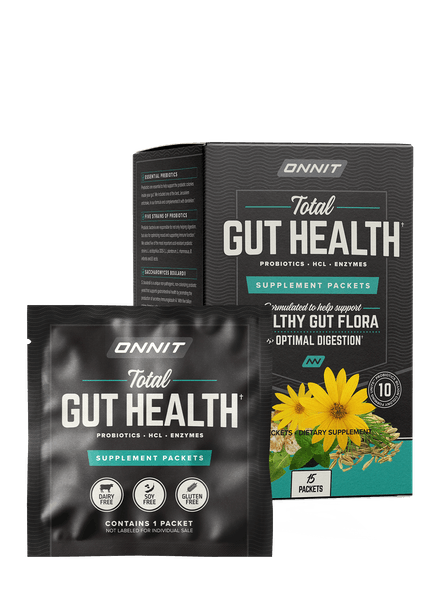
Before we go any further: if you’re here because of a typo in your Google search, and you really wanted to read about a fizzy soft drink, click the back button and try again.
However, if in fact you want to read about the digestive enzyme pepsin, you’re in the right place. And while it’s perhaps not quite as exciting as Pepsi, pepsin is pretty important—especially if you eat a lot of protein in hopes of building muscle and/or losing fat.
What Is Pepsin?

Pepsin is an enzyme in the stomach that helps break down the protein in your food for digestion. Specifically, it acts on the proteins in meat, eggs, dairy products, nuts, and seeds. It is the first enzyme to attack protein in a group of enzymes known as proteases (you’ll often see this term on digestion supplement labels). Pepsin was the first enzyme to be discovered, and was named by the German physiologist Theodor Schwann—the man who recognized the cell as the most basic unit of animal structure.
Here’s how pepsin works…
Glands in your stomach lining make a protein called pepsinogen. If there is a sufficiently acidic environment (between 1.5 and 3 on the pH scale), the vagus nerve, along with hormone secretions, stimulate the release of pepsinogen into the stomach. Pepsinogen then mixes with hydrochloric acid (stomach acid) and converts to pepsin. Pepsin breaks down the proteins in whatever foods are in your stomach into smaller units called peptides, which are then absorbed by the small intestine. In the intestine, other proteases continue to break the peptides down further into amino acids that your body can use to build new proteins for itself, or to burn for fuel.
Sometimes pepsin can flow backward from the stomach to the esophagus, resulting in acid reflux conditions. For this reason, traces of pepsin in the esophagus can help doctors diagnose reflux events. Drug companies sell products that are intended to inhibit gastric secretion to provide relief; one such product, Pepcid AC®, derives its name from pepsin.
Pepsin can be taken as a supplement to help with digestion. Commercial pepsin is derived from the stomachs of pigs. Due to its acidic nature, pepsin is also used to remove hair and other tissues from animal hides before they are tanned, as well as shells and scales from seafood.
What are the Benefits of Pepsin?

Pepsin does to protein in your food what a six year-old child does to a LEGO building—it dismantles it into smaller pieces. Those pieces can then be absorbed easily by the small intestine.
Pepsin is also responsible for killing bacteria in the stomach and separating vitamin B12 from protein so that the vitamin can be properly utilized. In 2015, Chinese researchers proposed that pepsin may help us digest nucleic acids—components of DNA and RNA that are essential to virtually every aspect of health, from the immune system to muscle growth. This finding suggests that pepsin’s role in nutrient breakdown is greater than previously thought.
Why Take a Pepsin Supplement?
Digestive enzymes can become diluted for a number of reasons, and, as a study in Oncotarget noted, they tend to diminish further as we get older. If the pH of your gut rises, your stomach won’t be able to release sufficient pepsin. Without the enzyme that breaks it down, the body can’t process protein optimally. Therefore, taking a supplement that contains pepsin may be helpful.
Pepsin can be taken alone, paired with an HCl supplement (betaine hydrochloride), or as part of a digestive enzyme blend. Some protein powders are also blended with pepsin and other enzymes to aid the protein’s absorption.
Pepsin For Bodybuilding

If you’re eating extra protein in an effort to put on muscle mass, or to retain muscle while you diet off fat, pepsin can help ensure that the protein you consume gets utilized properly. “While there is no clinical evidence linking pepsin supplementation to muscle building, clients with [digestive problems] often report good results when they start taking a digestive enzyme,” says Marc Bubbs, ND, CISSN, performance nutritionist for the Canadian men’s basketball team and author of the book Peak. “It may lead to restoration of appetite and consumption of the required amount of protein and calories to achieve hypertrophy.”
Another way to boost protein assimilation is to watch what you’re eating. Research published in Critical Reviews in Food Science and Nutrition notes that, “Legumes, cereals, potatoes and tomatoes contain inhibitors that reduce protein digestibility by blocking trypsin, pepsin and other gut proteases.” So, if you want to ensure that one component of your meal isn’t sabotaging another, you may need to limit your consumption of these foods when eating protein sources like meat, dairy, and fish. (Thorough cooking can also reduce the inhibitors in foods like beans and potatoes.)
While pepsin doesn’t exist in food, you may be able to boost your body’s own production of it by eating more protein- and fat-rich foods. Research in the American Journal of Clinical Nutrition suggests that high-fat/keto diets may produce greater amounts of pepsin.

)






